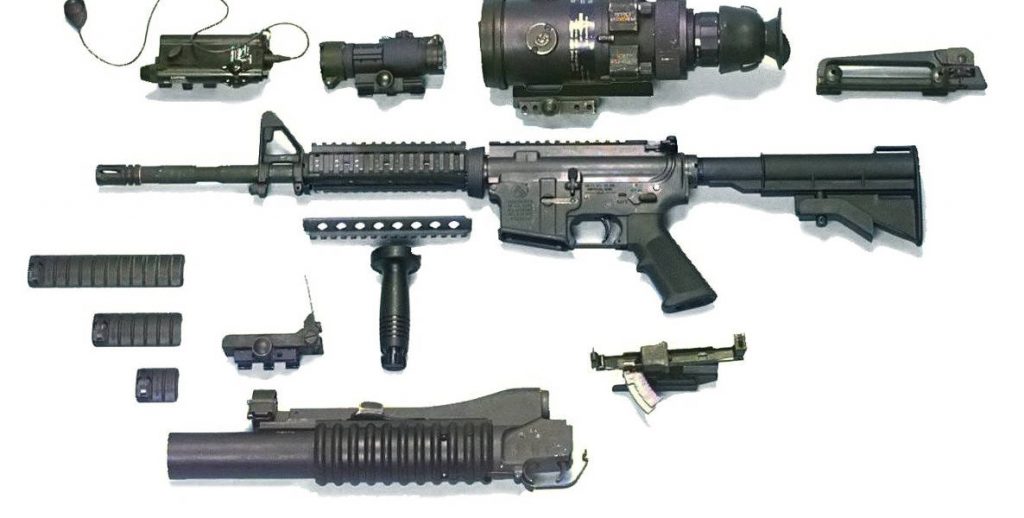In the wake of last week’s San Bernadino shootings, a great deal of the public discourse has turned to gun control, particularly assault rifles. (Donald Trump is more focused on Muslim control, but that’s beside the point for now.) For years, liberals and Democrats have tried to push gun control measures through state legislatures and Congress. And for years, the Supreme Court has rejected those laws as unconstitutional, seeming to chart a path to freewheeling gun ownership with no limits in sight.
So it was a surprise this week when the Supreme Court refused to hear a gun control case out of the suburbs of Chicago. The City of Highland Park had passed a law making it illegal for anyone to possess an “assault rifle,” which they defined as a semi-automatic weapon that can hold magazines of more than ten bullets. Had the Supreme Court decided to hear the case, they could have then overturned that law and declared it unconstitutional. By refusing to hear it, the Court effectively declared Highland Park’s law constitutional, paving the way for other cities and towns to pass similar laws.
Philadelphia won’t be one of them—at least for now. It’s not because gun violence isn’t a problem here; Philadelphia saw 621 shootings resulting in injury in 2014, and 149 gun-related murders. As of August 2015, the numbers were trending higher: 692 shootings with 161 murders. (Most shootings in Philadelphia do not occur with the types of assault rifles banned in Highland Park.) But while other municipalities around the country may now follow Highland Park’s lead, the decision won’t affect us at all thanks to a state law that handcuffs our local legislators from legislating on the issue. A little Second Amendment history and a primer on Pennsylvania lawsheds light on why.
The Court’s action was surprising largely because conservative groups like the National Rifle Association have had a field day at the Supreme Court in recent years, after literally centuries of relative inactivity on the Second Amendment. Prior to 2008, the last time the Court tackled a Second Amendment issue was in 1939, when it upheld a conviction for transporting sawed-off shotguns. In 2008, the Court decided D.C. v. Heller, which for the first time held that individuals, not just “well-regulated militias,” have the right to bear arms, placing severe restrictions on federal gun controls. Then, in 2010, the Court ruled in McDonald v. City of Chicago that the Court’s expansive new version of the Second Amendment applied to state and local governments as well.
Until this week, the Court seemed willing to run roughshod over any gun control measures they could. But by refusing to take the Highland Park case, they have instead opened the door for much more stringent local restrictions on gun purchase, ownership and use. Now we can expect cities across the country to pass laws similar, if not identical, to the Highland Park law in an effort to curb the prevalence of assault rifles like the ones used in last week’s San Bernadino mass shooting. In fact, just yesterday, the governor of Connecticut announced an executive order banning all gun sales in his state to individuals on federal terrorism watch lists.
Unlike Illinois and Connecticut, though, Pennsylvania has a law called the Uniform Firearms Act, part of which prevents any local municipality from passing gun laws that are more restrictive than preexisting state law. Council President Darrell Clarke found this out the hard way in 2008, when City Council tried to impose a ban assault rifles in the City of Philadelphia and limit handgun purchases to one per person per month. The ban was overturned by state courts because it was more restrictive than the state’s gun regulations. Meanwhile, laws similar to the UFA have been routinely deemed constitutional.
Any change to the types of guns allowed in Philadelphia depends on our state government passing more restrictive gun laws first, something unlikely to happen so long as our General Assembly is dominated by Republicans from rural and suburban parts of the state. Which means while other cities around the country take advantage of the Highland Park case to limit the sales of semi-automatic weapons like the ones used in San Bernardino, Philadelphia will have no such option.

